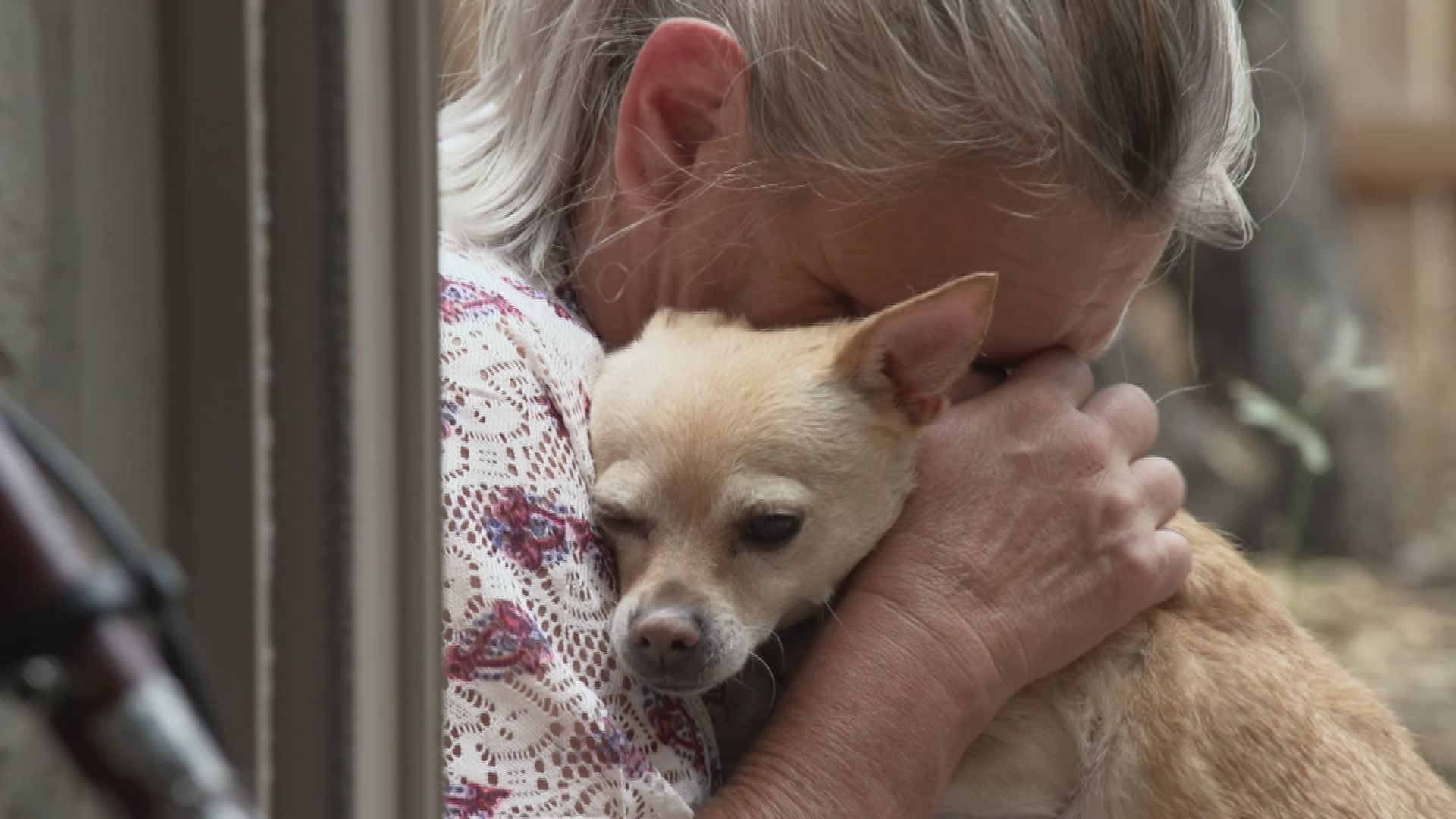
Lisa Spillman can’t imagine life without her dog, an 8-year-old chihuahua mix named Rosebud. But she says her household expenses were getting tough to handle.
“Everything – rent, groceries, dog food… it’s all going really high,” Spillman, 52, told CNBC.
And she’s not alone.
According to a new survey conducted by pet care site Rover, the majority of pet parents say they are spending more on their animals than they were six months ago. More than 90% of pet parents in the U.S. say they have noticed an increase in pet-related costs due to inflation, up from 71% who said the same in January, according to the survey.
Rover also found that to adjust for increasing prices, pet parents are trading down on things like food, treats and accessories for their dogs.
In some cases, owners have been forced to say goodbye to their furry best friends.
Spillman, who lives in Tucson, was forced to move after rent skyrocketed nearly 40%. Her only option was a place that wouldn’t take dogs.
“Losing my baby, who loves me so much, hurt very much,” Spillman said.
Pima Animal Care Center in Tucson is hearing more often from pet owners that they’ve been forced to surrender their animals because of housing concerns, such as eviction or lack of affordable housing, according to shelter Director Monica Dangler. A year ago, housing-related surrenders made up 6% of the shelter’s surrenders — now, they make up 18%.
Dogs waiting to be adopted inside Pima Animal Care Center in Tucson, Arizona.
CNBC
“It’s staggering. And it’s, you know, sad that people are having to surrender due to things outside of their control due to inflation and the rising market costs for housing,” Dangler said.
While the number of animals entering shelters has decreased more than 14% since before the pandemic, shelters across the U.S. are still overwhelmed with animals, according to Shelter Animals Count, which tracks animal sheltering across the country. So far this year, 6% more animals have entered shelters than have left, according to the organization.
“Many shelters report in recent months that the reasons people are needing to give up their animals has changed,” the organization’s Executive Director, Stephanie Filer, told CNBC. “They’re now more commonly seeing issues related to housing or finances as why families – often tearfully – are forced to say goodbye to their family’s pet.”
Dog owner Lisa Spillman, 52, hugs her 8-year-old dog, Rosebud.
CNBC
In Kansas City, Missouri, KC Pet Project expects to take in a historic number of pets this year – 15,000 – compared with roughly 10,000 on average in recent years, according to Chief Communications Officer Tori Fugate.
“We need the community to help us get through this – through adoptions, fostering and just helping us save lives,” Fugate said. “I highly encourage you to reach out and get involved with your local shelter.”
So far in 2022, 40% of the dogs that have come into the shelter have been relinquished by their owners as a result of housing or financial constraints.
“[Families] don’t want to give up their pets, but they are coming to us as a last resort because they have no other options,” Fugate said.
Exterior of KC Pet Project in Kansas City, Missouri
CNBC
A few months ago, Veronica Gurrola had to say goodbye her two miniature schnauzers, Oreo and Cookie.
“It came to where I had to choose, you know, my kids, you know, over our pets,” Gurrola told CNBC. “Having a mortgage to pay… all of that stuff… it adds up. And it seems like everything is going up – except for, you know, pay.”
One shelter in New York City, Animal Care Centers of NYC, reported 4,567 animals were surrendered so far this year – up 22% from the same time last year.
“Due to the economy, a lot of people are needing to move to different places,” shelter Director of Marketing and Communications Katy Hansen said. “They’ve lost their job or they can no longer afford the 30% rent increase – that is one of the biggest reasons that people are having to surrender their animal.”
For some, the separation is temporary. Both Spillman and Gurrola were able to get their dogs back.
Their local shelters have foster care programs that place dogs on a short-term basis while owners get back on their feet.
“I’m really grateful for that,” Spillman said, who now lives in a pet-friendly home in Tucson with a backyard for Rosebud. “She’s very active. She missed us a lot – as much as I missed her.”






